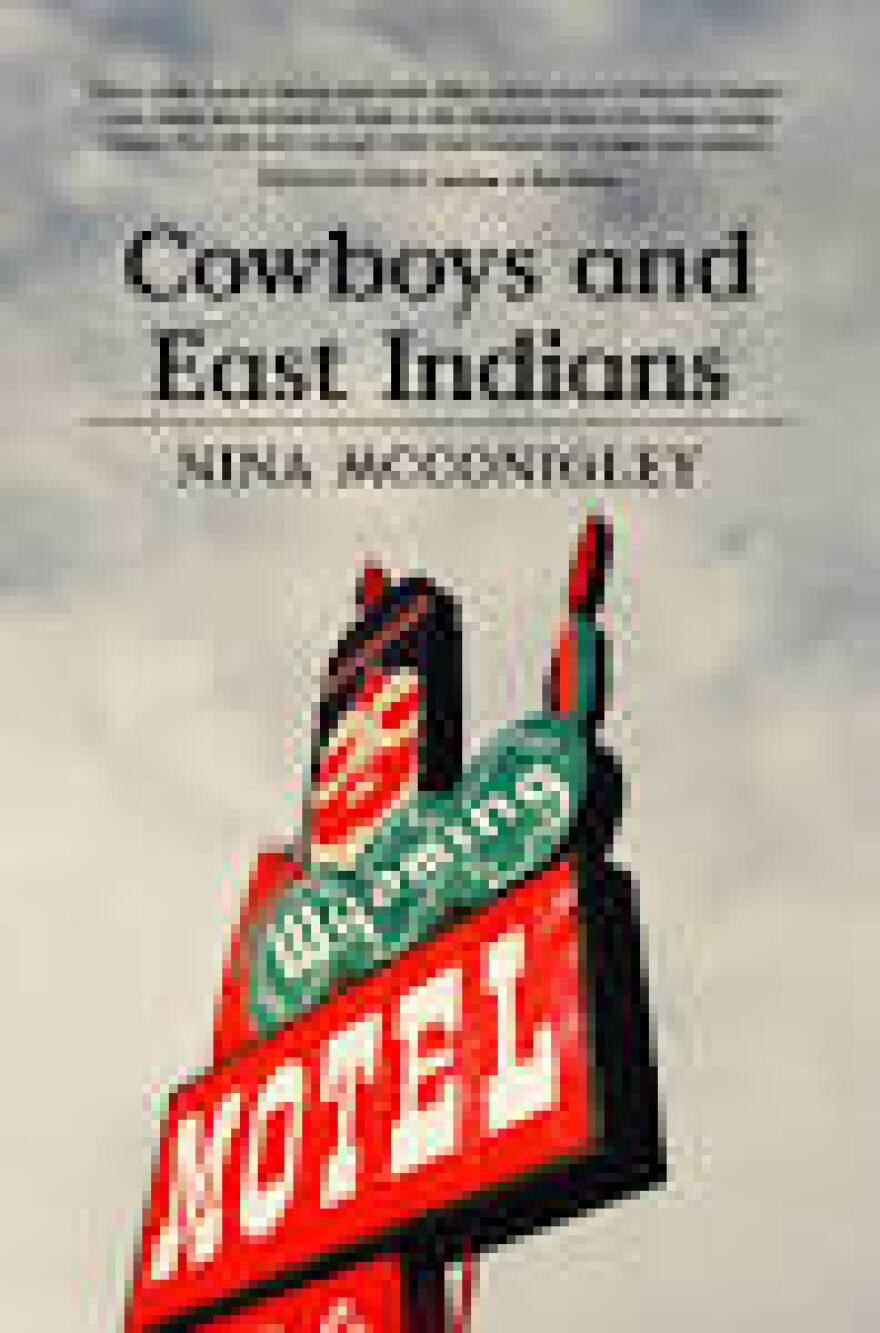KNAU's Southwest Book reviewer, Mary Sojourner, has lived in the desert for decades. She thought she knew all about it. She thought she'd memorized its sunsets, people and nuances. But then she read Cowboys and East Indians, by Nina McConigley. That's when Sojourner realized she'd been looking at the desert southwest through a very narrow lens, as she reveals in this month's book review.
I read, write and review books from the perspective of a 76-year old white woman raised in a small farming town in upper New York state. I emigrated to the Southwest in 1985 as a 45-year old white woman who, as a little girl, had wanted nothing more than to be a cowboy - a cowboy who was a sidekick to a real Indian. In short, I read, write and review books with cultural myopia.
After I read Nina McConigley's detailed and humor-rich short story collection, Cowboys and East Indians, I understood that for 31-years I have experienced a fraction of the West. I've treasured and written about the mountains, rivers and deserts. I've listened to and written stories about Native Americans, Mexican-Americans and Anglos. All the while, I've barely seen or listened to dozens of other cultures that make-up the Western and Southwestern landscapes.
Nina McConigley was born in Singapore and raised in Wyoming. Her real life alchemizes into stories of a little girl who drank Tang and ate samosas for her afternoon snack; a group of young bridesmaids in saris, making S'mores and drinking beer around a chuck wagon campfire; and the newly arrived woman, Chitra, who sees her first oil pumping jack and says, "And that fellow looks like he is bowing to Allah!"
McConigley writes about the rich and maddening world of being a girl, teenager and woman neither fully Indian, nor fully Anglo, but thoroughly American. In the short story White Wedding, Lucky's mother is dying from cancer. "Lucky," she says, "I have to ask you something. I want you to promise something. Lucky, I can't be buried in Western clothes. I had a dream last night that I was in my coffin, and you were burying me in a frilly pink nightgown. Promise me I won't be in Western clothes." Lucky promises. Then her mother teaches her how to put on a sari.
McConigley's language is consistently - not just poignant - but elegant. "As the speeches began, I went out the back door. The house was hot and smelled like curry. Outside the wind bellowed. I stood on the lawn and listened to the air move through the cottonwoods. I picked up a cottonwood branch and broke it at a joint. Inside was a perfect star. Few people knew this."
Cowboys and East Indians taught me more than how to see the cottonwood star. It taught me how to see and hear far beyond the perspective with which I had unknowingly lived. In that, Nina McConigley has given me the real West.








